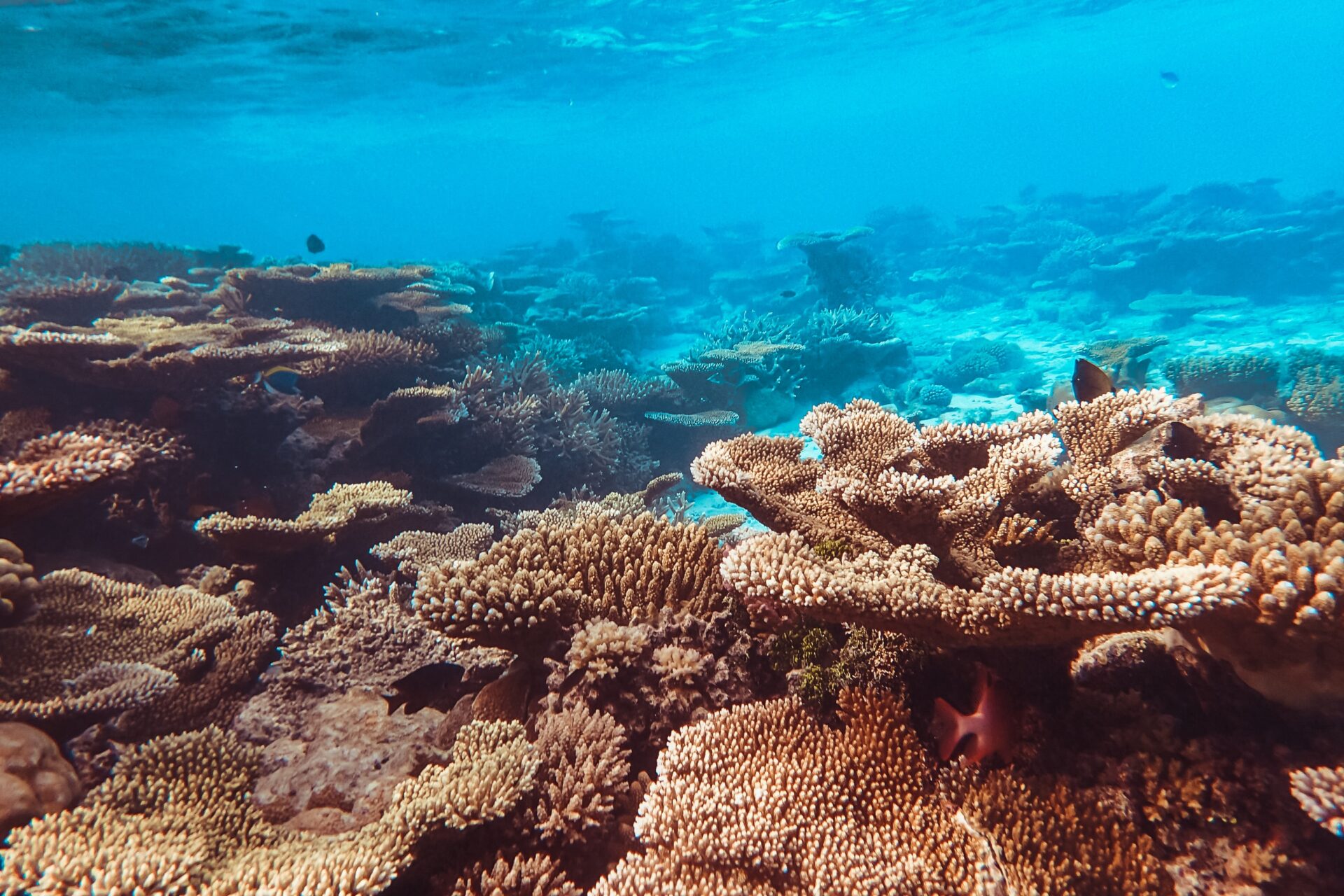ORRAA Action Report 2021
Read about the innovative projects undertaken by ORRAA, in conjunction with its members, in 2021, in our first Action Report.

Project Lead: United Nations Development Programme (UNDP)
Financial Support: Government of Canada
Location: Global
Coral reefs protect lives and property from ocean related risks. With reefs in decline, there is an urgent need to invest in their resilience. One model for catalysing this is reef insurance. ORRAA partner the United Nations Development Programme (UNDP) is leading global analysis on understanding the risks to coral reefs to guide investment, facilitate disaster responses, and create markets for reef insurance.
Coral reefs and associated systems provide food and resources worth USD$2.7 trillion per year to more than a billion people in over 100 countries and territories. They add value to fisheries, tourism, and other sectors. Coral reef fisheries provide USD$5.7 billion in catch annually. Reef tourism generates USD$36 billion in revenue a year around the world. With around eight percent of the global population living less than 10 metres above sea level, floods could cost coastal cities as much as USD$1 trillion per year by 2050. Together, this presents a powerful business case for the conservation of coral reefs.
However, human activity and climate change are causing bleaching, die-back and physical destruction of reefs that can result in losses of up to 75 to 90 per cent by 2050. The need for investment in reef resilience is urgent. Innovative risk transfer solutions, including insurance, have the potential to remedy this situation by transferring the risks faced by reefs based on the value they hold.
ORRAA partner UNDP is helping to define a global standard for risk transfer. The report, ‘Insuring nature to reduce risk: Risk-transfer solutions for coral reefs‘, provides guidance on developing risk transfer solutions, which includes insurance and investments, for improving coastal resilience and aiding the livelihoods that depend on them.
The report studies the policy and regulatory framework, spotlights existing gaps, and outlines specific approaches to reef insurance that can protect the most vulnerable. This includes exploring how insurance pay-outs can fund vital reef repair activities, which when supported by governments can lead to rapid on the ground response. It also underlines the importance of women-led business activities relating to reefs and the importance of aiming for gender balance and empowerment to ensure reef resilience efforts.
More than 200 existing international legal and policy instruments directly or indirectly support the conservation and sustainable management of coral reef ecosystems. Gaps, however, persist. For example, local governments may lack the authority to protect reefs through risk transfer solutions. They also often lack guidance or capacity to secure and finance insurance and other risk-sharing mechanisms for the protection or rehabilitation of coral reefs.
To pave the way for reef insurance and other risk-sharing solutions, the enabling environment must be improved. The report shows that financial solutions that are complemented by a strengthened legislative framework for biodiversity and associated ecosystems provide a solid starting point for developing insurance and other risk-sharing mechanisms for natural capital.